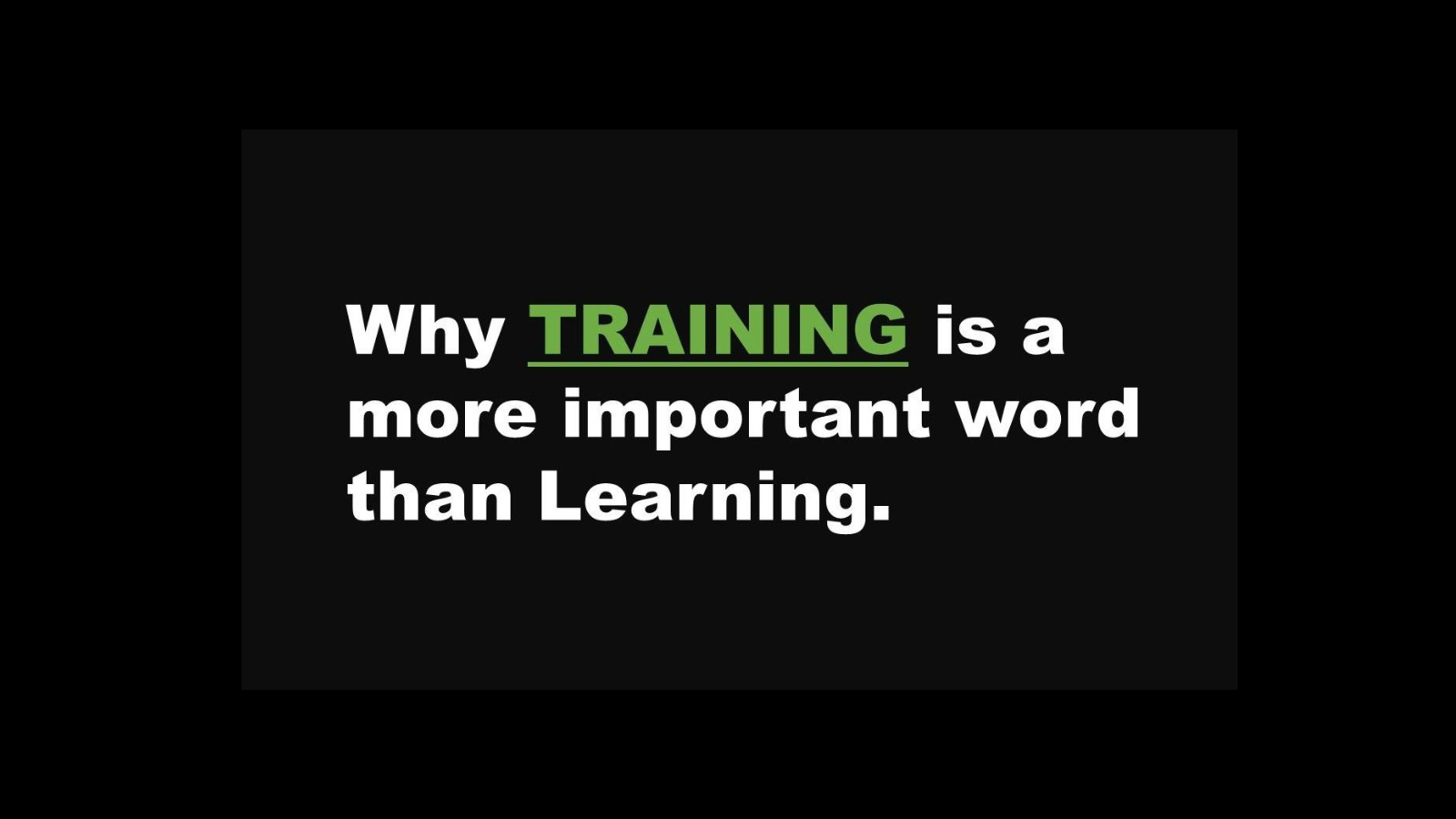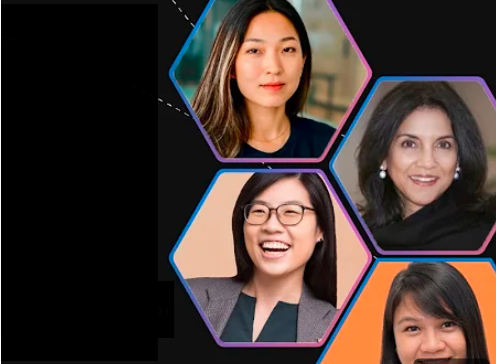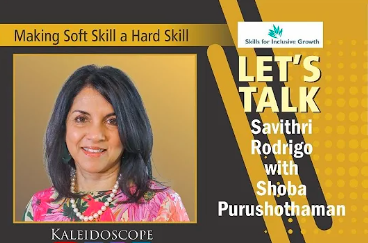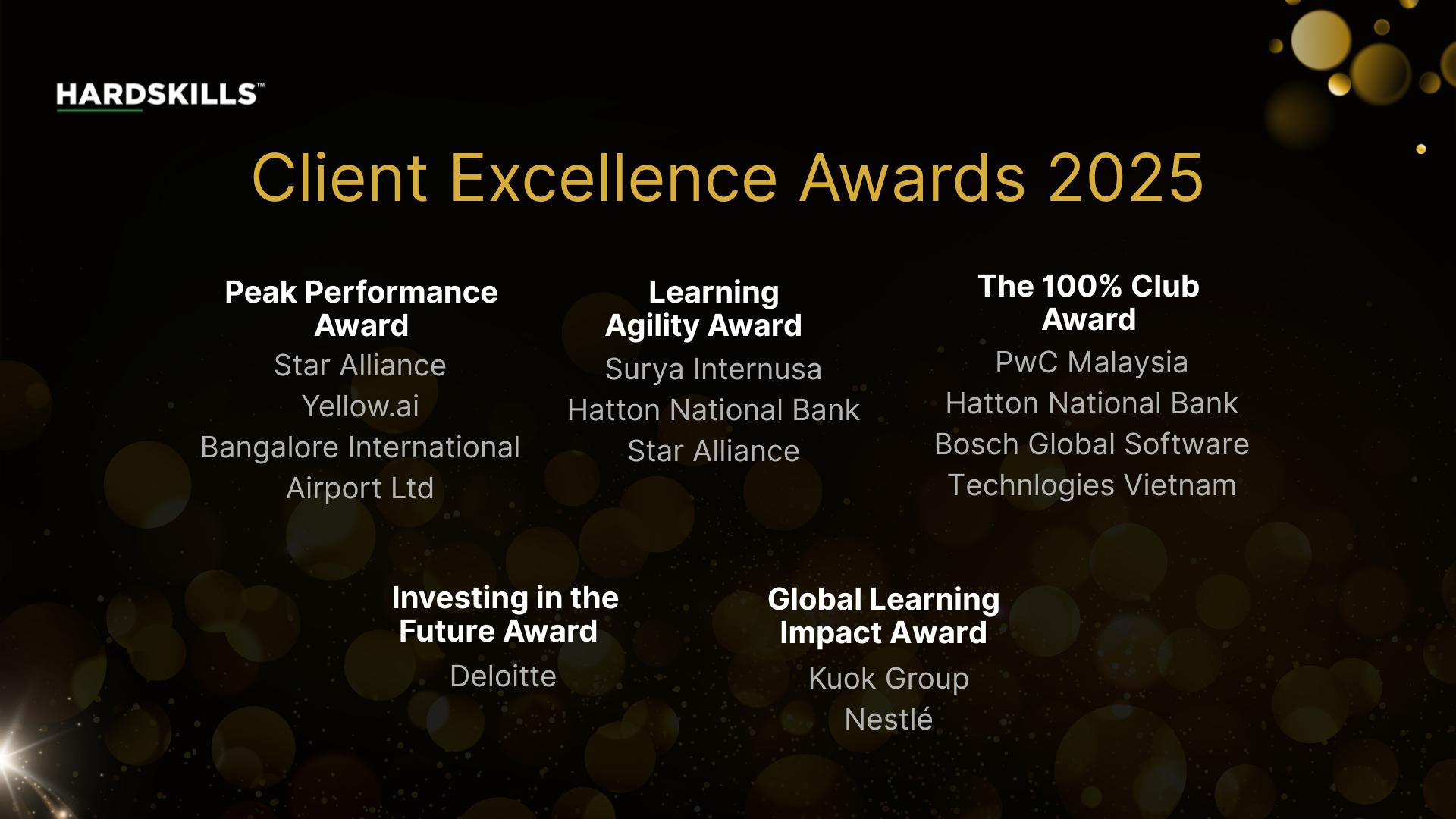
If you are headed to court tomorrow, or to surgery or a top restaurant what word comes to mind of your expectation of the legal, medical, or culinary teams awaiting you? I’d suggest it’s that you’d expect them to be TRAINED.
That’s because we rightfully expect professionals to be Trained.
You will expect those professionals to have "learnt" a lot of knowledge and skills as they went through their training.
The training to achieve that (& subsequently certification) in those professions is by its nature “Intentional” with a defined structure and discipline and conducted over a period of months or years so that skills and behaviours are not only introduced as knowledge but strengthened repeatedly, with repetition so they “Stick” and can be applied as behaviours in the professional environment.
Now. Consider the multiple roles in organisations where leaders are asking that their teams and workforces get ready for the new world of work. That they move with Agility, Collaborate with Inclusion, Focus with Creativity to Innovate faster than the competition. This corporate firehose of activity, accelerated by digital transformation is too often focused on the word learning.
The word, training, often used when discussing the development of individuals in professions is often ignored by corporates trying to develop their people. But, just as with professions, the term Training is VITAL because a truism is that THE QUALITY OF THE LEARNING will rely largely on THE QUALITY OF THE TRAINING.
Take the ability to Actively Listen. A critical trait for a successful salesperson, manager, or indeed most roles and, as we all know, a behaviour by no means universal. But it’s a foundation behaviour of high-performance. Will watching one of the hundreds of videos on a learning platform on the subject develop that behaviour? No. Will a two-day communication course develop that behaviour? Unlikely.
Developing the behavioural awareness to actively listen as an executive takes Intentional Training over time, with repetition and reinforcement so the skill becomes ingrained as a behaviour.
Developing the behaviours required for Digital Transformation and Change requires the same intentionality as development of core skills in the professions. The behaviours required such as ability to Think Critically, Say No when No is the right answer, Focus etc are what I term the real HARDSKILLS but they can be trained effectively, measurably and, at scale.
With Intention.

Why Training is a more important word than Learning
If you are headed to court tomorrow, or to surgery or a top restaurant what word comes to mind of your expectation of the legal, medical, or culinary teams awaiting you? I’d suggest it’s that you’d expect them to be TRAINED.
That’s because we rightfully expect professionals to be Trained.
You will expect those professionals to have "learnt" a lot of knowledge and skills as they went through their training.
The training to achieve that (& subsequently certification) in those professions is by its nature “Intentional” with a defined structure and discipline and conducted over a period of months or years so that skills and behaviours are not only introduced as knowledge but strengthened repeatedly, with repetition so they “Stick” and can be applied as behaviours in the professional environment.
Now. Consider the multiple roles in organisations where leaders are asking that their teams and workforces get ready for the new world of work. That they move with Agility, Collaborate with Inclusion, Focus with Creativity to Innovate faster than the competition. This corporate firehose of activity, accelerated by digital transformation is too often focused on the word learning.
The word, training, often used when discussing the development of individuals in professions is often ignored by corporates trying to develop their people. But, just as with professions, the term Training is VITAL because a truism is that THE QUALITY OF THE LEARNING will rely largely on THE QUALITY OF THE TRAINING.
Take the ability to Actively Listen. A critical trait for a successful salesperson, manager, or indeed most roles and, as we all know, a behaviour by no means universal. But it’s a foundation behaviour of high-performance. Will watching one of the hundreds of videos on a learning platform on the subject develop that behaviour? No. Will a two-day communication course develop that behaviour? Unlikely.
Developing the behavioural awareness to actively listen as an executive takes Intentional Training over time, with repetition and reinforcement so the skill becomes ingrained as a behaviour.
Developing the behaviours required for Digital Transformation and Change requires the same intentionality as development of core skills in the professions. The behaviours required such as ability to Think Critically, Say No when No is the right answer, Focus etc are what I term the real HARDSKILLS but they can be trained effectively, measurably and, at scale.
With Intention.






.png)

